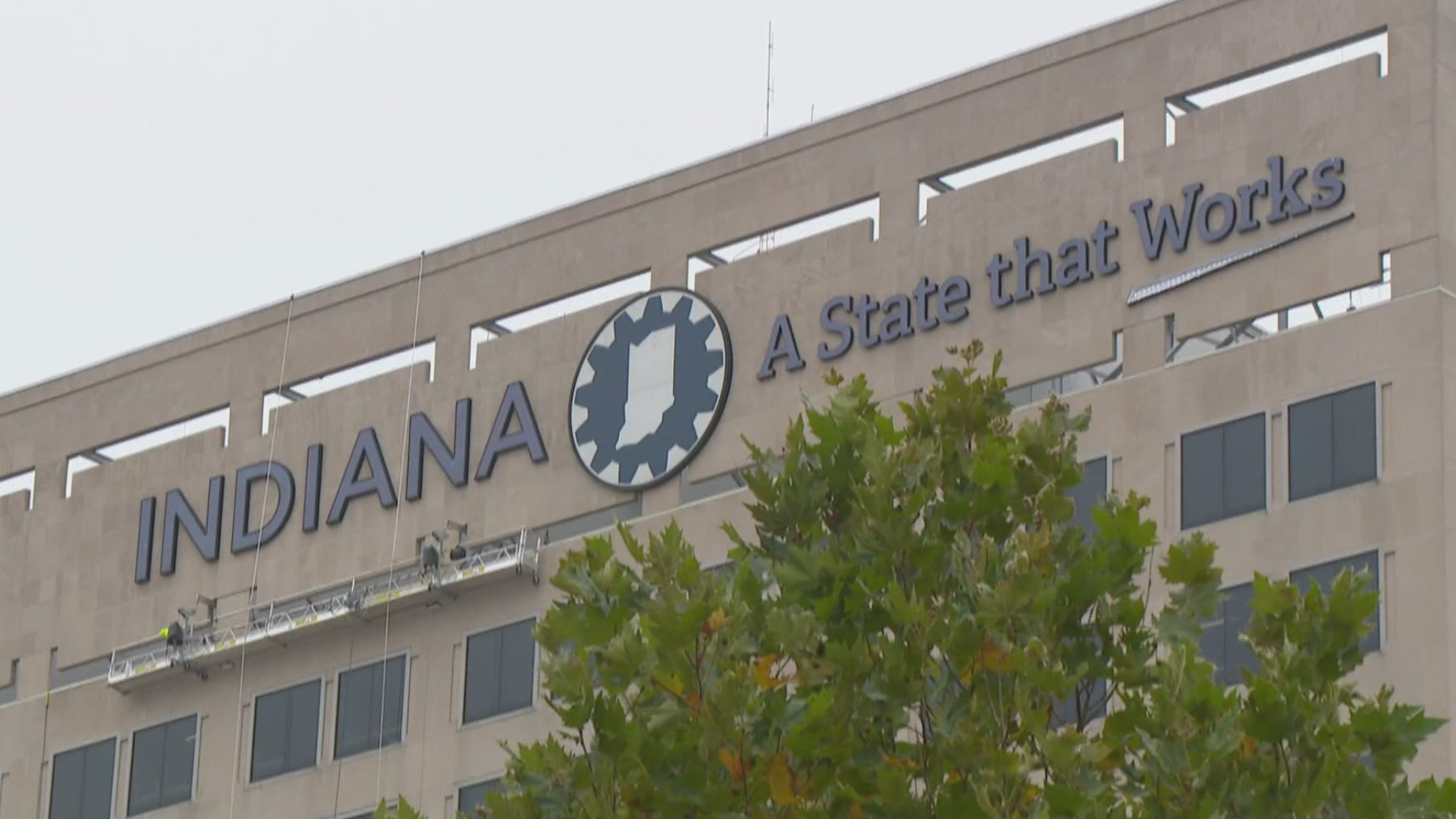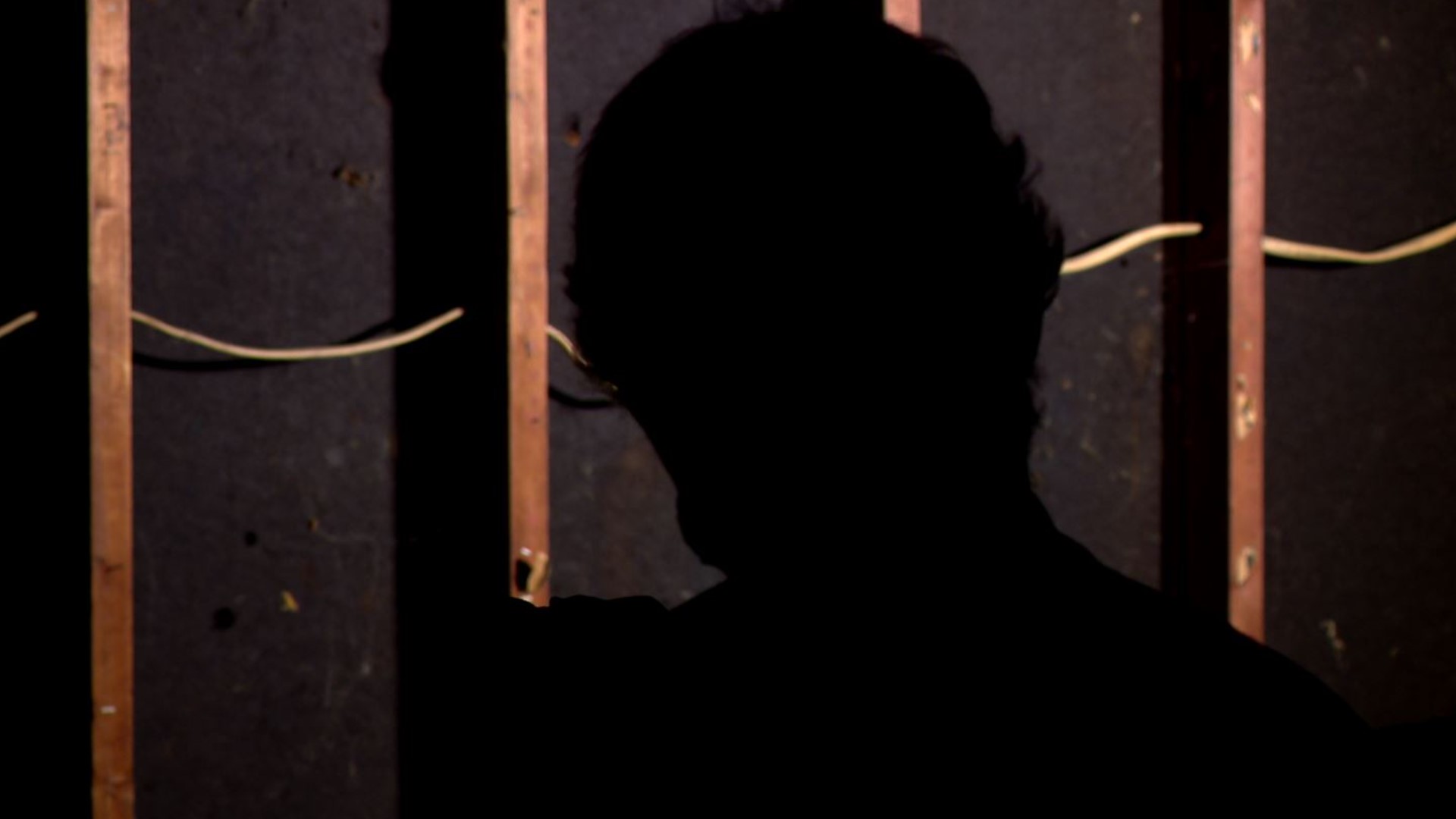INDIANAPOLIS — Kim Saunders is disgusted with the Indiana Department of Workforce Development.
“I don’t know what I’m supposed to do. I’ve worked my whole life, so I don’t understand why they’re doing this,” she told 13News.
The longtime hair dresser applied for pandemic unemployment assistance (PUA) back in April, after her hair salon — and every other salon in Indiana — was ordered to temporarily shut down at the start of the COVID-19 pandemic.
Seven months later, Saunders has not received a penny of unemployment from DWD.
Thousands of other Hoosiers find themselves in the same position as the number of backlogged unemployment claims in Indiana continues to rise sharply. Internal data obtained by 13News revealed DWD had more than 700,000 pending claims as of late August. 13 Investigates has now discovered that number jumped to over 1.2 million pending unemployment claims by the end of October – and some of those claims were filed as far back as March.
“There’s a lot of people waiting for that money and really hurting right now. They need that to feed their families,” Saunders said.
At the same time, DWD continues to pay millions of dollars every month for contracted workers who are supposed to be helping laid-off Hoosiers like Saunders access their unemployment benefits.
One of those contracted workers is now speaking out. The whistleblower recently met with 13 Investigates to explain why Indiana’s unemployment system is failing so many people.
“They hired us to help these claimants who are waiting for their unemployment, but the truth is we can’t help anybody. They won’t let us, and it’s really been taking a toll,” the whistleblower told 13News. “The way the system works doesn’t make a lot of sense. It’s pretty crazy.”
“Really can’t do anything”
The contracted worker said they decided to come forward after seeing a 13News investigation that aired last month. That investigation revealed the size and scope of a contact DWD signed with his employer.
According to the contract, which 13 Investigates obtained through an open records request, DWD hired a company called Navient to provide approximately 300 call center workers to answer phone calls to the state agency’s unemployment helpline. The contract and several subsequent amendments signed last spring state Navient will receive up to $15 million for nine months of service.
DWD entered into the agreement because its call center employees were slammed with a flood of calls from Hoosiers who had been laid-off due to COVID-19 shutdowns. At the time, DWD call center wait times often exceeded two or three hours. Many callers reported being disconnected after waiting hours on hold without ever getting to speak with a call center worker. DWD decided to bring in Navient to “redirect calls to Navient’s call center hub for triage.” The idea was to provide callers with basic information, resolve common inquiries, and provide case-specific information to callers who needed help with more complex cases. DWD hoped to reduce long wait times by hiring contractors who could help callers.
But while wait times eventually declined, many callers have told 13News the actual help they needed never materialized – despite DWD boasting that it hired new workers. The helpline whistleblower told 13 Investigates there is a simple explanation: Navient contractors are permitted to answer basic questions, but they are not authorized to resolve backlogged claims.

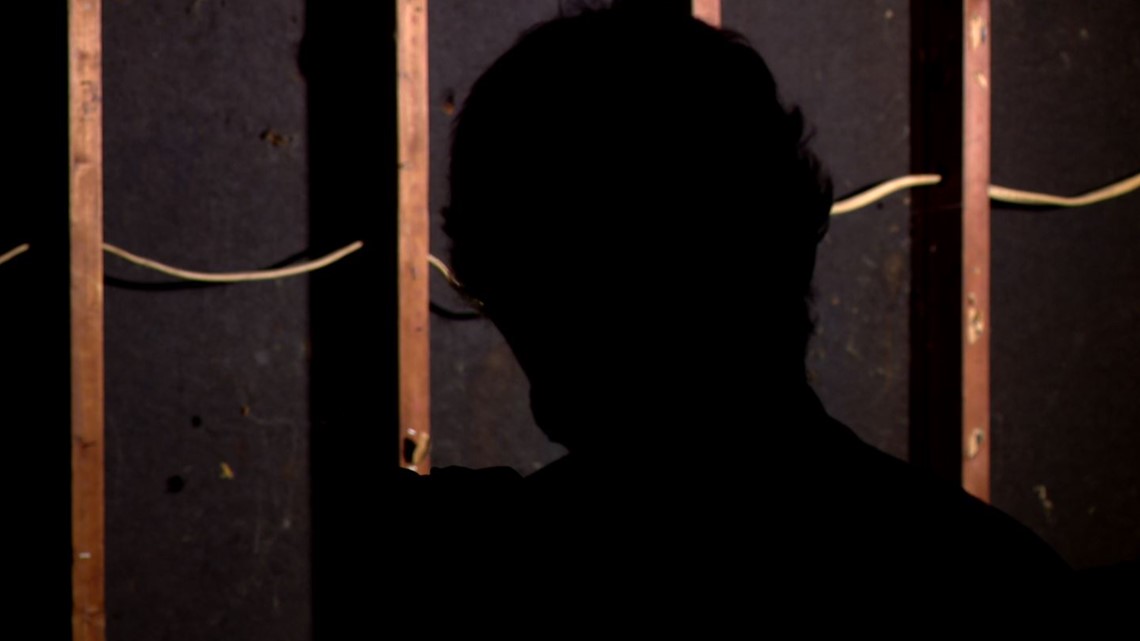
Whistleblower: “The department won’t let us do it because we're not DWD agents. We're just contracted.”
13News: “What are you allowed to do?”
Whistleblower: “Nothing. We really can't do anything...letting them know, really, all you can do is wait. That's the essence of it. What we're supposed to do is read off a few scripts to let them know, ‘This is the problem. This is what the problem means. A claims investigator may need to reach out to you.’ That's essentially it…and the Department of Workforce Development thinks it can be just that cut and dry with people. But I assure you, anyone that we are talking to doesn't want to hear those scripts. They want to know what is taking so long.”
The scripts instruct helpline contractors what to tell callers depending on the specific scenario shared by the claimant. And regardless of the scenario, many of the scrips instruct Navient staff to say the same thing:
- For a general issue, laid off workers are told: "Do not be worried...a DWD claims investigator may have to contact you…"
- For a deductible income issue, contractors are also supposed to say: "Do not be worried…a DWD claims investigator may have to contact you…"
- And for a pandemic unemployment issue, callers are informed: “This will need to be reviewed by a claims investigator." (These callers are not instructed to not be worried.)
Whistleblower: “Ninety-nine percent of the time, issues can only be fixed by a claims investigator, and you have to wait for a claims investigator to potentially call you if they need more information.”
13News: “All you can do is say, 'Wait for someone else to call you back.’ That’s it?'”
Whistleblower: “Correct.”
13News: “Can you transfer someone to an investigator?”
Whistleblower: “No. We don’t have the option or ability to transfer over to claims investigators.”
13News: “Why?”
Whistleblower: “We don’t know. We have never been given an actual answer for that.”
The contracted worker said Navient helpline staff who have additional Tier II training are permitted access to callers’ Uplink accounts to help claimants verify their identity, unlock their accounts or to try to spot problems that might explain why the processing of an unemployment claim is delayed.
But even when simple problems are identified, the contractors have no authorization to fix them. And written instructions from DWD tell helpline workers they are not supposed to tell callers how long it will take for a claims investigator to call them back.
“We're really just leaving them out there, just saying, 'Sorry, we don't know when this will be taken care of.' There’s not much else we can do,” the whistleblower told 13News.
Simple mix-up couldn’t be resolved
Kim Saunders said she was very hesitant to apply for unemployment assistance at all. It wasn’t until she had been out of work for a whole month that she completed the online application.
“I’ve never, ever had to fill out unemployment – ever – in my whole life,” she told 13News. “And I kept thinking that there are other people who need it more than I do. But after a few weeks, I decided to apply because I’ve worked my whole life, ever since I was 14. All these years I’ve paid into the system and paid my taxes, and I had a real need, so that’s why I decided to apply.”

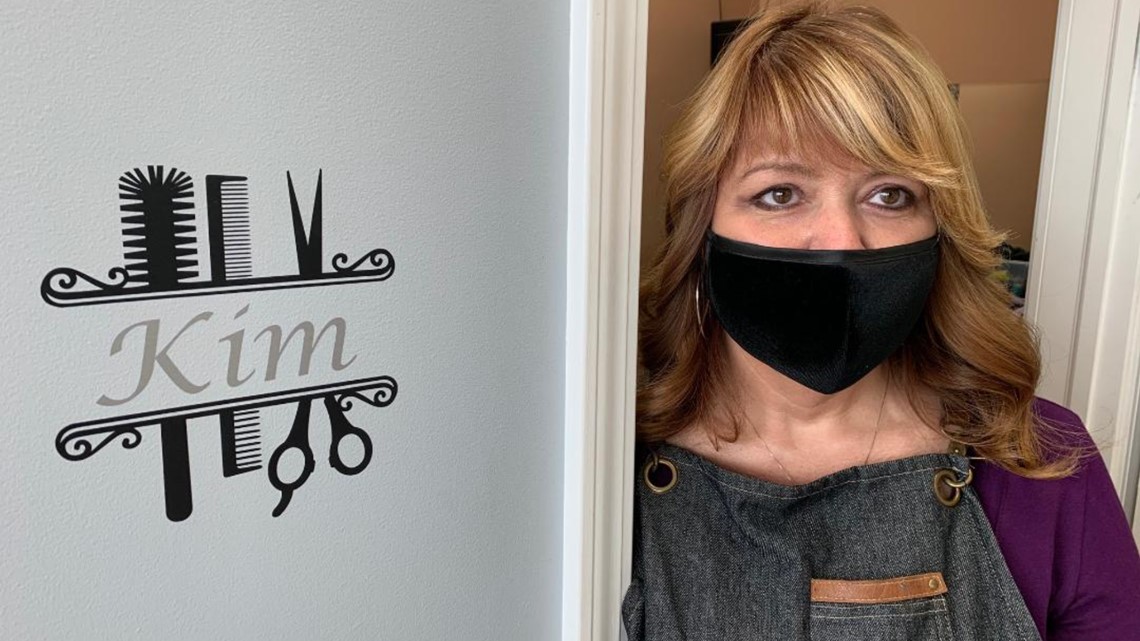
The problem that delayed Saunders’ PUA benefits was first identified by a helpline worker last spring, and two Navient insiders – who both spoke anonymously because they are not authorized to speak publicly about DWD claims issues – told 13News the issue should have been extremely easy to resolve.
The self-employed hairdresser said she was confused by a single question on the application form. It asked if Saunders was able to work at the time she filed for unemployment assistance.
“I answered 'no' because I wasn’t able to work,” Saunders explained. “In my field, I was not able to work. We were grounded as an industry, so I thought that was how I was supposed to answer.”
What the state actually wanted to know was whether Saunders was physically capable of working, so her answer raised a red flag.
She waited weeks for her unemployment request to be approved. The weeks then turned into months. Her husband, an IMPD fire marshal who is also a trained paramedic, started working extra hours at a local hospital while the family relied on a single income.
“That was pretty scary to be honest,” Saunders said. “We were right in the middle of COVID, and he’s working long hours inside a hospital because I had to stay closed until the [executive] order was lifted.”
After her mandatory 10-week shutdown ended, Saunders called the DWD helpline to check on the status of her claim. She was reassured the error on her application was simple, but that it could only be resolved once a claims investigator reviewed her file. The review didn’t happen until the end of October – six months after Saunders first filed for PUA benefits – and the results shocked the longtime hair dresser.
Hours after explaining the mix-up to a DWD claims investigator, she received a determination letter from DWD. It said “the information the claimant provided shows that they are not able and available for employment which makes them ineligible for PUA benefits.” DWD “suspended” Saunders’ access to unemployment benefits during the 10 weeks she was not allowed to work at the start of the pandemic, meaning her right to thousands of dollars in unemployment assistance that she was entitled to has been denied.
In the process, DWD ignored Saunders’ explanation that she misunderstood the form. It also ignored the fact that she had worked every week leading up to the state’s COVID-19 shutdown order and that the hairdresser has worked every single week since the shutdown order ended. Her only recourse is to appeal the decision to an administrative law judge, which could take another three to four months.
“I’m not an angry person but, yeah, this makes me pretty angry,” Saunders said as she put rollers in a customer’s hair. “It’s just really sad. And I know there’s got to be a lot of other people out there just like me.”
More unemployment “nightmares”

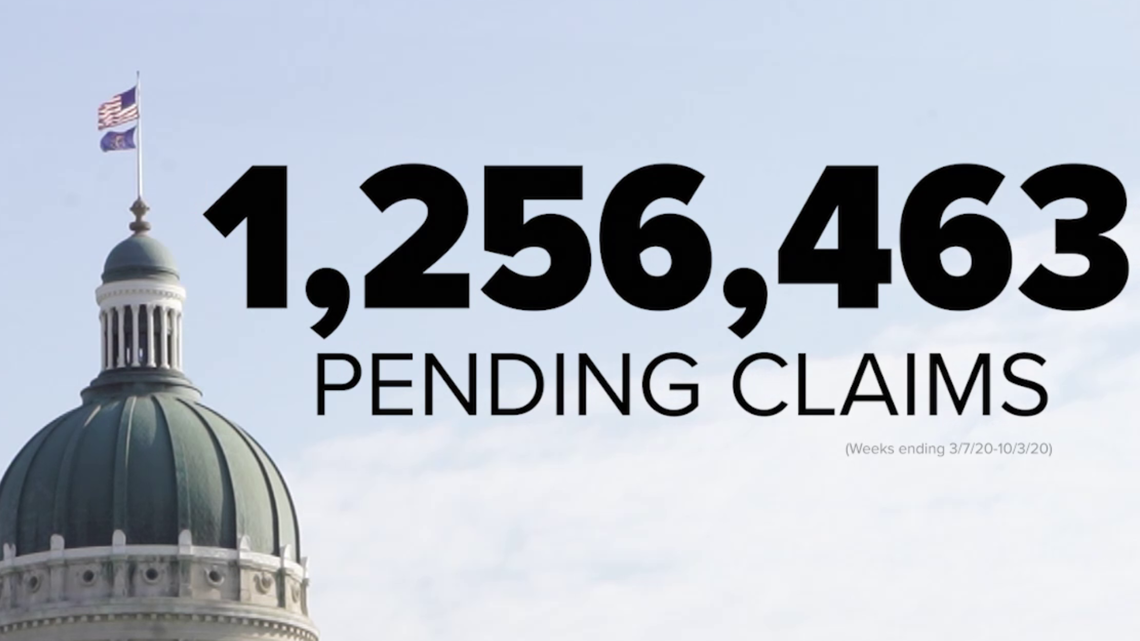
DWD data shows 1,256,463 of the unemployment claims filed by Hoosiers who were unemployed during the weeks ending March 7 through Oct. 3 were still classified as “pending” in late October.
While the agency says about 80 percent of claims are processed and paid within three weeks (DWD does not include first-time claims in that number and, if it did, that number would be lower), that still leaves a large number of cases that take longer – sometimes much longer – to pay. For example, about one million Hoosiers filed eligible unemployment claims for time they were laid-off in September; by late October, more than 186,000 of those claims were listed as pending.
The agency said the total number of pending cases includes claimants who filed their unemployment claims months after they were laid off. (The department says it usually processes claims within 21 days, and for the sake of calculating the number of backlogged unemployment claims in Indiana, 13News did not include any recently filed claims in its analysis).
DWD also said it has received a large number of fraudulent claims, requiring claims investigators to investigate more cases. In turn, that has increased the processing time for pending cases and the total number of backlogged claims.
“The PUA program across the United States is an easy target of fraud. Thus many of the claims, particularly the more recent PUA claims, are suspicious for fraud,” explained DWD spokesman Bob Birge.
But while the state battles fraud in its unemployment program, many Hoosiers with routine unemployment issues are facing long delays due to a shortage of claims investigators to address their cases in a timely manner.
David Lauermann is among them.
“The unemployment office has really just been a nightmare,” he told 13News.

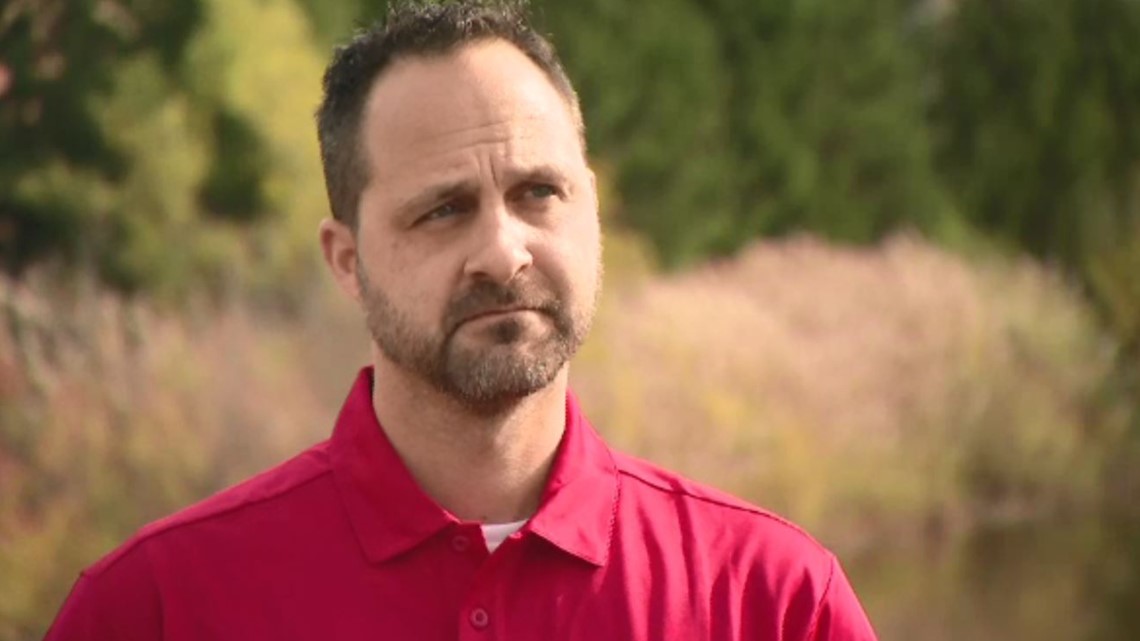
In early August, Lauermann lost his job at a local auto body shop. He immediately filed for unemployment with Indiana DWD and began receiving benefits. Two weeks later, the benefits stopped, and DWD informed Lauermann a claims investigator needed to review his case.
It took eight weeks for the investigator to call, but only a couple of minutes for that investigator to inform Lauermann his claims for unemployment were being denied. The investigator said the auto body shop claimed Lauermann was fired for cause and, therefore, the auto repair estimator did not qualify for unemployment. Lauermann said he was fired because the owner of the body shop chose to save money by laying off workers a few days before selling the business. His only recourse is to wait another several more months for an appeal hearing.
“You hope you never need unemployment, and then something like this happens and you’re told ‘Sorry. Just keep filing your vouchers every week and someone will get back to you later,’” Lauermann said. “It’s a very frustrating experience, and nobody at the call center seems like they can help. I don’t think an investigation ever really happened. It seems like they just say ‘Deny him and we’ll see if he files an appeal.’”
“Starving to death”
John Cass is also waiting for unemployment payments. He’s been waiting 12 weeks since he was fired from his job at a northern Indiana RV manufacturer. The company let him go in early August because Cass was not showing up for work. He had a pretty good excuse.
On Aug. 2, Cass was riding his motorcycle when a van pulled out in front of him, leaving him in an intensive care unit for five days.
“Broke my leg in three places, six ribs, shoulder, collarbone. I was in pretty bad shape,” he said. Cass is now physically able to return to work, but filing his weekly unemployment claims since the accident have gone nowhere – and workers who answer the DWD helpline won’t explain why.

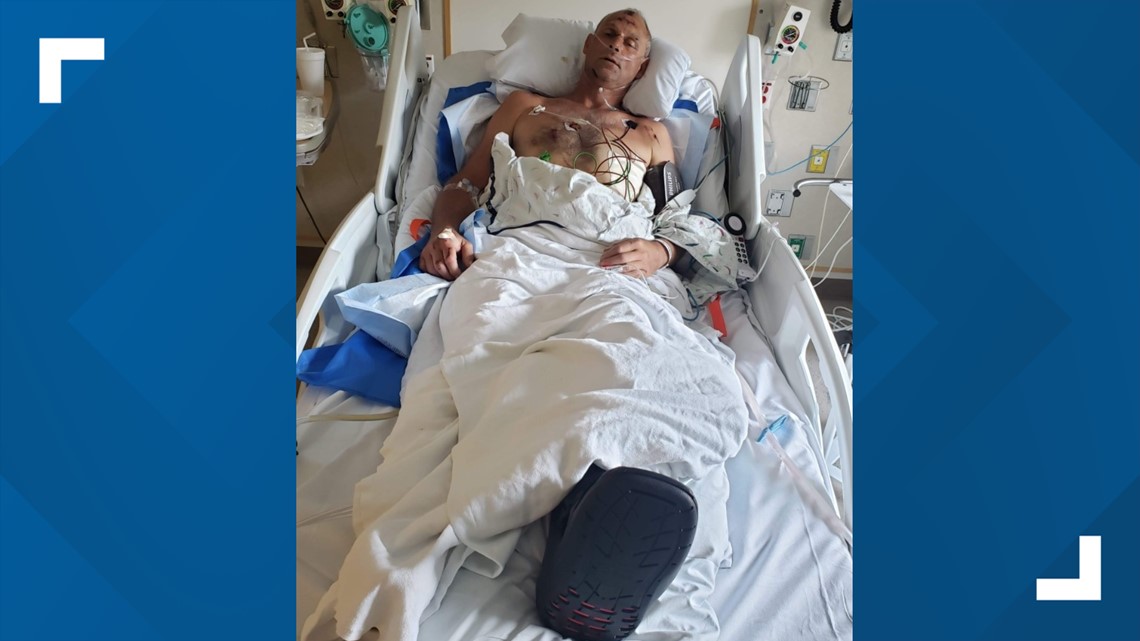
“Nobody helps you. Was just told that somebody will call me back and she said I need to be patient,” Cass said, pausing and shaking his head. “Be patient? Really? I’m getting my lights shut off. My gas is shut off. I’m starving to death, you know what I’m saying? They can kiss my a--.”
The whistleblower who met with 13News said helpline workers talk with angry calls like Cass every day.
“If I was in their shoes, I’d be outraged too. We're really just leaving them out there, just saying, ‘Sorry, we don't know when this will be taken care of,’” the Navient contractor said. “It's devastating for just about everyone that's calling in because, you know, they’re about to lose their home. They're about to lose their car. Their landlord is trying to evict them. And they haven't received any compensation.”
The worker also pointed out that many of their co-workers feel emotionally exhausted after a day of fielding calls to the state’s unemployment helpline.
“A lot of people from my team and a lot of people on the contract feel the same way. Some people come in feeling sick to their stomach because we can’t really help them. [We know] claimants are just going to be yelling at us the majority of the day” the contractor said.
NOTE: The video below is a segment of the interview 13 Investigates' Bob Segall did with the whistleblower.
DWD response
Over the past 12 weeks, WTHR has requested an interview with a DWD representative on nine separate occasions. The state agency has ignored every one of those requests. The latest request came last week, when 13 Investigates sent the agency’s chief communications officer five questions regarding this news report. One of the questions was whether DWD would be willing to meet – in person or via teleconference – to discuss the agency’s backlog of unemployment claims and allegations from one of its helpline contractors. Chief communications officer Bob Birge provided brief written responses, at least in part, to four of the five questions submitted by 13News. He did not acknowledge or respond to the fifth question asking DWD if it would make a department representative available for an interview.
By email, Birge responded to claims that helpline workers contracted through Navient are not empowered by DWD to resolve claimant issues:
“The Contact Center agents, whether employees of Navient or DWD, are helping claimants every day. The main purpose of the Contact Center is to answer UI questions regarding eligibility, filing, next steps, fraud, overpayments, appeals and other similar items. While the Contact Center agents fill a vital role in the UI program in helping claimants navigate the UI system on a daily basis, they are not claims investigators. Claims investigators require a significantly higher level of training and are subjected to stringent federal DOL quality standards…
Not all issues require the claims investigator to contact the claimant. It would not be efficient, and would significantly lengthen the process of adjudicating claims, if calls were transferred prior to a claims investigator being prepared to resolve the issue. Navient staff can resolve some issues (examples being able and available, questionable identity, quarterly wage match, and alien status).”

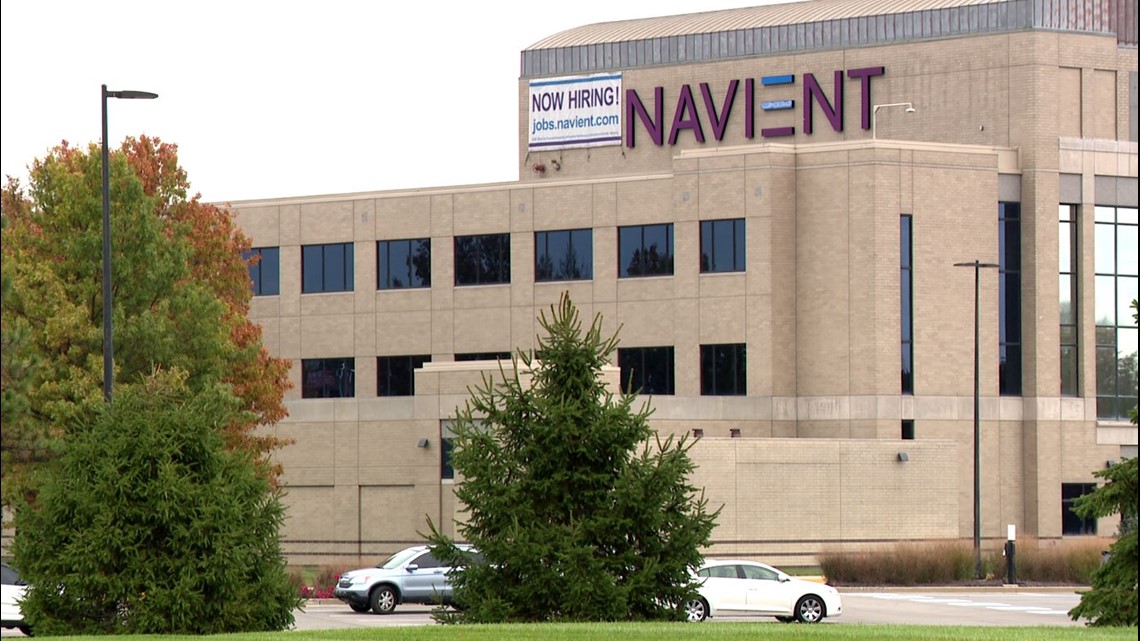
Some of Birge’s statements are inconsistent with the experiences of claimants who have called the DWD helpline and with information provided to 13News by two contractors who work there.
Kim Saunders, for example, contacted the DWD contact center multiple times while trying to resolve the mix-up about whether she was “able and available” to work. Saunders said each time, a Navient contractor told her the issue could only be resolved by a claims investigator.
Company will get millions more
Both helpline workers and frustrated claimants say the department would be wise to shift some of its contracted helpline workers to the area of claims investigation to address the growing backlog of pending cases.
Asked what is the most frustrating part of working at the DWD helpline, the Navient whistleblower sighed before responding: “Actually knowing that we could actually do a few things in the system but the Department is not letting us…We're going on roughly six months now doing this. It's taking an emotional toll knowing that we actually can't help people. This could be avoided if the Department would actually let us help them.”
Told of the whistleblowers comments, Saunders replied: “If they are supposed to be helping people, they should be able to do the job they were hired to do.”
Lauermann agreed, saying he questions DWD’s decision to spend $15 million on helpline workers who are not able to provide meaningful help. “I think you could have spent a few thousand dollars and probably gotten an answering machine that would have done the same thing these workers are doing,” he said.
According to DWD, the agency has 352 claims investigator and investigator supervisor positions. Birge did not say how many of those positions are currently filled, but he told 13News that 64 people are “in the process of hiring.” It is not clear when they will be available to actually begin investigating claims since those employees require significant training that is subject to stringent federal quality standards. The DWD spokesman says the agency is also “borrowing” staff from other areas of DWD in an effort to resolve pending claims.

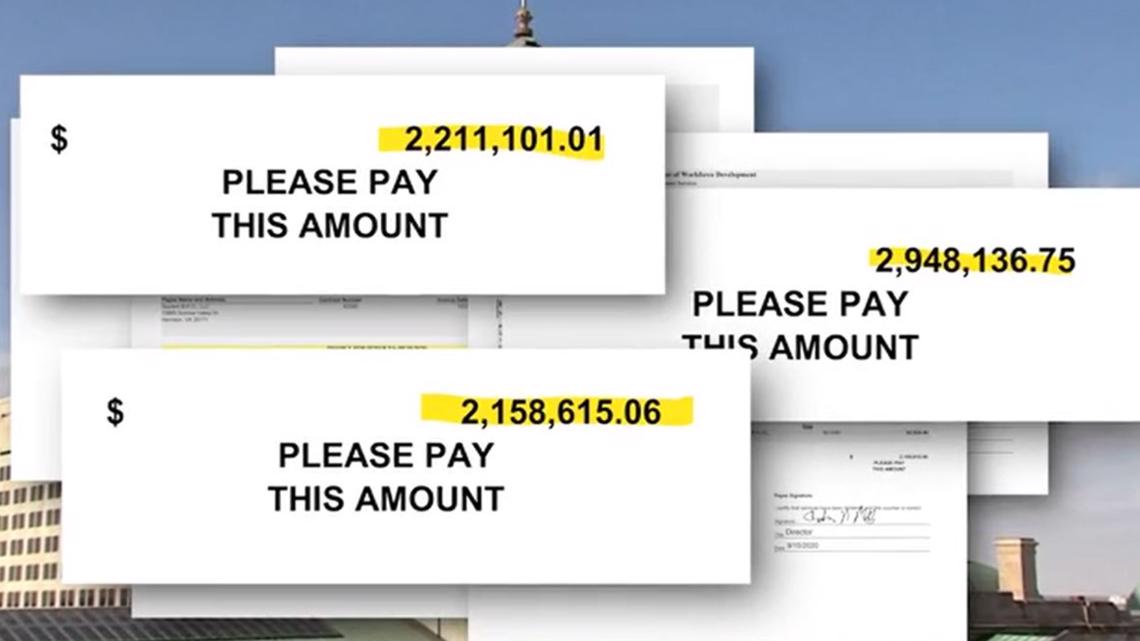
Monthly invoices obtained by 13 Investigates show Navient has already billed DWD for $14,854,510.40 – nearly the total maximum amount allowed under the nine-month, $15 million contract – for just the first six months of work performed. Late last month, DWD signed a contract extension with Navient that will provide the company with an additional $8,484,794.28 for answering Indiana’s unemployment helpline calls through the end of 2021.
Under the terms of the amended contract, DWD is paying Navient an hourly rate of $47.50 per contracted helpline worker. Each worker gets paid roughly a third of that rate, with the rest going to Navient to pay for overhead, benefits and other expenses, according to the whistleblower.

